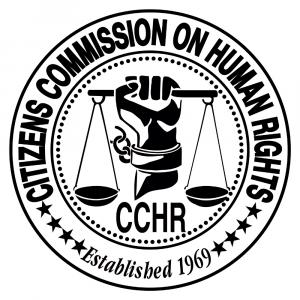After Reexamining Study Data, Researchers Dispute Approval of Commonly Prescribed Antidepressant for Children and Teens

Fluoxetine, sold under the brand names Prozac, Sarafem, Selfemra and Rapiflux, is the only drug approved in the U.S. for children ages 8 years and older with depression, but a reanalysis of the data used to get approval concluded the drug isn’t effective or safe.

Concerns about antidepressants should be discussed with a physician; anyone who wants to discontinue or reduce the dose is cautioned to do so only under the supervision of a physician because of the risk of serious withdrawal symptoms.
A common antidepressant medication has no clinically relevant benefit for depressed children and teens, but carries safety risks, researchers claim.
Fluoxetine, the generic name for Prozac, Sarafem, Selfemra, and Rapiflux, is the only drug approved by the Food and Drug Administration (FDA) for depressed children ages 8 and older in the U.S. [1]
Researchers Peter C. Gøtzsche, M.D., director of the Institute for Scientific Freedom in Denmark, and David Healy, psychopharmacologist and professor of psychiatry at McMaster University in Canada, conducted a systematic review of the two clinical trials used to gain the approval of fluoxetine for depressed children and adolescents in the U.S. in 2002.
The recent analysis, published in International Journal of Risk & Safety in Medicine, found that there was no clinically relevant benefit from fluoxetine. That was also the conclusion of the patients, who rated fluoxetine as ineffective. The researchers further found that the data showed “precursors to suicidal thoughts and actions and violence occurred more often on fluoxetine than on placebo.” [2]
Gøtzsche and Healy were critical of the two trials they examined. They claimed that essential information for the two studies was missing and that “there were many errors, inexplicable numerical inconsistencies, and unexplained exclusions of patients from analyses.” Additionally, “results that were inconsistent with the conclusion that fluoxetine is safe and effective were side-lined or explained away in a disturbing manner,” they wrote.
In making the point that the effect of antidepressants on growing children and teens is not known, they refer to the package insert for fluoxetine, which states that “there are no studies that directly evaluate the longer-term effects of fluoxetine on the growth, development and maturation of children and adolescent patients.”
From their review, the researchers’ conclusion was straightforward: “Our reanalysis of the two trials showed that fluoxetine is unsafe and ineffective.”
Patients or parents concerned about the new study are encouraged to discuss it with their physician and are cautioned not to discontinue or change the dose of the drug unless under the supervision of a physician because of the risk of serious withdrawal symptoms.
In 2006, some 3.3 million young people under the age of 25 were on antidepressants. By 2020, the number had grown to more than 5.6 million, an increase of more than 70%.
Rising right along with the number of young people on antidepressants were the youth suicides in this country. In 2006, a total of 4,408 children and young adults under the age of 25 took their own lives, with 219 of these deaths in children 14 years old or younger. By 2019, the number had increased by 47% to 6,500 suicides, with 546 committed by children ages 14 or younger, a nearly 150% increase.
The FDA first took action on the increased risk of suicide from antidepressants in 2004, requiring a black box label to be placed on the drugs, after drug trials found that children and adolescents taking the newer generation of antidepressants, selective serotonin reuptake inhibitors (SSRIs), were almost twice as likely to have suicidal thoughts or to attempt suicide as those receiving placebos. In 2007, the FDA expanded the warning to include young adults ages 18 through 24.
More recent research has re-confirmed the validity of the black box warning. Glen I. Spielmans, Ph.D., professor of psychology at Metropolitan State University in Minneapolis, led a study that analyzed data from antidepressant clinical trials to investigate the charge by critics that the black box warning had resulted in more youth suicides because fewer children were taking the drugs.
“Recent data suggest that increasing antidepressant prescriptions are related to more youth suicide attempts and more completed suicides among American children and adolescents,” the researchers concluded, writing in Frontiers in Psychiatry in 2020. [3]
“Based on the sum of this evidence, regulatory warnings regarding antidepressant-linked suicidality are clearly warranted,” they wrote, adding: “When a clear body of evidence points to increased treatment-linked risk, patients and health care providers should be made aware of these risks.”
The main rationale for prescribing SSRI antidepressants – to fix a supposed lack of serotonin or other brain chemical presumed to be the cause of depression – has been called into question by recent research. A review of reviews, led by Joanna Moncrieff, M.D., a British psychiatrist and academic at University College London, concluded that, after decades of brain research, there is still no scientific evidence to support the theory that a low level of serotonin causes depression.
“Our comprehensive review of the major strands of research on serotonin shows there is no convincing evidence that depression is associated with, or caused by, lower serotonin concentrations or activity,” the researchers wrote. “It also calls into question the basis for the use of antidepressants.” [4]
The Citizens Commission on Human Rights (CCHR) continues to raise public awareness of the risks of serious side effects and withdrawal symptoms from antidepressants and other psychiatric drugs, so that consumers and their physicians can make fully informed decisions about starting or stopping the drugs. CCHR supports safe and science-based non-drug approaches to mental health.
CCHR recommends a complete physical examination with lab tests, nutritional and allergy screenings, and a review of all current medications to identify any physical causes of depression or other unwanted mental and emotional symptoms, which might otherwise be misdiagnosed and incorrectly treated as a psychiatric disorder.
WARNING: Anyone wishing to discontinue or change the dose of a psychiatric drug is cautioned to do so only under the supervision of a physician because of potentially dangerous withdrawal symptoms.
The Citizens Commission on Human Rights was co-founded in 1969 by members of the Church of Scientology and the late psychiatrist and humanitarian Thomas Szasz, M.D., recognized by many academics as modern psychiatry’s most authoritative critic, to eradicate abuses and restore human rights and dignity to the field of mental health. CCHR has been instrumental in obtaining 228 laws against psychiatric abuses and violations of human rights worldwide.
The CCHR National Affairs Office in Washington, DC, has advocated for mental health rights and protections at the state and federal level. The CCHR traveling exhibit, which has toured 441 major cities worldwide and educated over 800,000 people on the history to the present day of abusive and racist psychiatric practices, has been displayed at the Congressional Black Caucus Foundation Annual Legislative Conference in Washington, DC, and at other locations.
[1] https://www.fda.gov/consumers/free-publications-women/depression-medicines
[2] https://www.scientificfreedom.dk/wp-content/uploads/2022/11/2022-Gotzsche-restoration-of-the-two-fluoxetine-trials-in-children.pdf
[3] https://pubmed.ncbi.nlm.nih.gov/32116839/
[4] https://pubmed.ncbi.nlm.nih.gov/35854107/
Anne Goedeke
Citizens Commission on Human Rights, National Affairs Office
+1 202-349-9267
email us here
Visit us on social media:
Facebook
CCHR: Antidepressant Warning
Legal Disclaimer:
EIN Presswire provides this news content "as is" without warranty of any kind. We do not accept any responsibility or liability for the accuracy, content, images, videos, licenses, completeness, legality, or reliability of the information contained in this article. If you have any complaints or copyright issues related to this article, kindly contact the author above.


